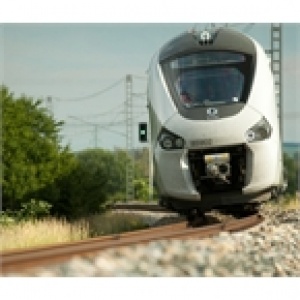Amadeus: European Union legislation to revolutionise rail travel

Imminent European Union legislation could prove to be the catalyst for expediential growth in long-haul rail travel, according to experts at tech giant Amadeus.
Research from the organisation suggests the impending fourth package of railway liberalisation, due to be fully implemented by 2018, could prove to be a major milestone for rail travel.
“This will liberalise all of the markets within Europe, including France,” explained Philip Martin, head of marketing, Amadeus Rail. “This will allow railway to really take off for the first time.
“We could see Deutsche Bahn running trains from Marseilles to Paris, for example, in the same way they are already planning to operate from London to Frankfurt.”
The legislation covers standards for rolling stock; workforce skills; independent management of infrastructure; and the liberalisation of domestic passenger services within member states.
The changes are likely to increase demand for rail travel, in turn boosting demand for further infrastructure construction, creating a virtuous circle, continued Martin.
“The European Union is going to have to invest more money in this area, creating standards for ticketing across the continent for example,” he added.
A growing realisation among business travellers of the possibilities of rail travel is also likely to prove beneficial, according to Amadeus.
“Businessmen can work for the entire journey. Railways have a strong case in this area, offering mobile meeting rooms for example,” added Martin. “There is tremendous possibility for growth here, if we can boost awareness.”
Amadeus Platform
Amadeus is playing its role in the development of EU rail integration by building a generic rail platform, which was launched with French operator SNCF.
“We are looking for six of the largest railways in Europe to join us on this platform, making it essential for the larger travel management companies, corporations and others to join,” added Martin.
“There is a real push anyway, people want to travel by train, but it is a question of making it easier for them to do so.
“Our platform allows consumers from across Europe to choose routes which take them from door-to-door.”
Stimulus
Entry into the market of new competitors, including NTV in Italy and West Bahn in Austria, is also likely to boost demand, while a growing understanding of the benefits of cooperation between rail operators and airlines helps.
“There has been talk of long-haul rail competing with airlines, but we are seeing the opposite emerge – an increase in cooperation. For example, Dutch Rail and KLM were planning to compete over routes, but are now beginning to work together.
“At peak times they run trains, as they are bigger and hold more passengers, while the airlines run flights over the same route in off peak times,” he explained.
“Railways also bring in a larger catchment area, brining in passengers from around the country to Schiphol, where they catch long-haul flights. This reduces the need for expensive feeder flights.”
More Information
Amadeus recently issued predicting long-distance passenger traffic will increase by 21 per cent to reach over 1.36 billion by 2020, 238 million up compared to 2011 figures.
Take a look at the report here.

